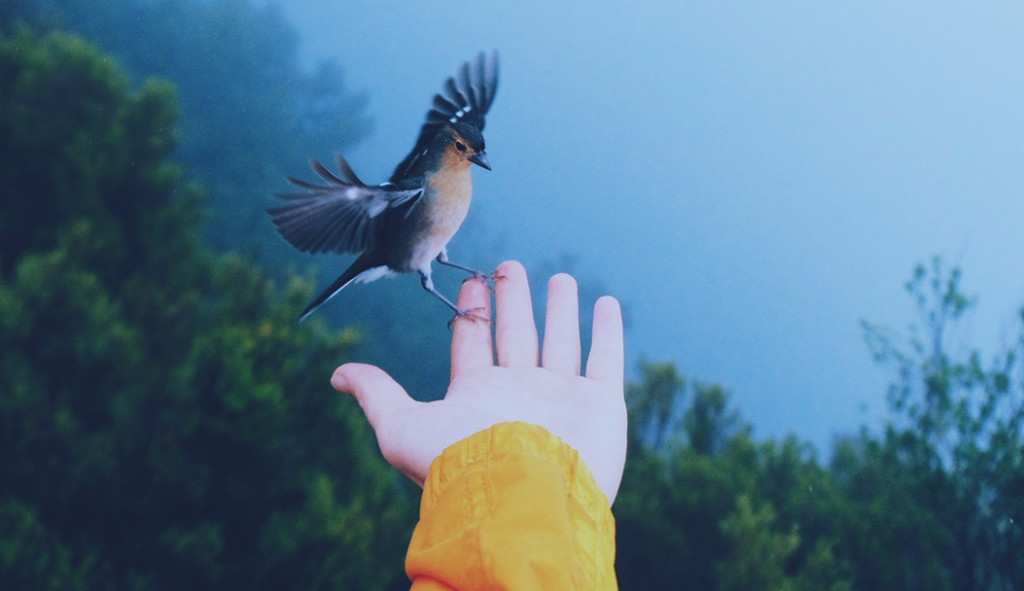I don’t remember when I started crying soulless tears. At some point, the physical symptoms of sadness detached themselves from the emotional state itself. I hear her name, I see the bluebird in the garden she used to wave and smile at, I feel a chilly mountain breeze on a warm day, the kind that made her feel invincible, and I tear up. My throat thickens. It becomes hard to breathe. I can feel the blood rushing to my head, pressuring my temples and eyes. My brain blocks any activity and only numbness remains. I cry, but all I feel is complete isolation. Isolation from the rest of the world, from my own body, from life itself. Why can’t I connect my memories of her to my feelings, and live and experience them in the here and now? I used to understand how I felt. When and why did I start losing my grip?
Numbness
Language was my mother’s passion and something she excelled at. I like to believe we never really needed words to connect, however, even before she lost her ability to speak. I was still in high school when she was diagnosed with Frontotemporal Dementia (FTD), and only a boy when the first symptoms began to influence our family life. This illness attacks a patient’s ability to formulate or understand words. It changes your social and personal behavior, manipulates (but does not erase) memories and kills the ability to carry out even simple activities, like tying shoes or using cutlery. FTD corrupts the soul to the extent that even a mother can become completely apathic towards her own children. It eats away human dignity, leaving behind nothing but empty gazes and confusion.
My adolescent life took place in a home where illness prevailed. You could breathe the tension in our house from the moment you opened the door. I dealt with regular teenage issues at school, but at home I was exposed to aggression, anxiety, and depression every day. When I moved back in with my parents to take care of my mother at the age of 21, creating a stable life for my mother became my life challenge. I taught myself: help her even when you’re burning with anger, comfort her even when you’ve lost all patience. Always try to be as invisible as possible and make her feel as though she has some control over her own life. Lie and live the lie. Bit by bit, however, I lost control over my own life. I forgot how to laugh, how to engage in chitter-chatter, how to identify and experience my own feelings. Everything became average, grey, dull, bearable.
You are who I am
I did not realise or think about any of this until my mother died in October last year. Regardless of her sickness, we were shocked by losing her so suddenly. Unexpected, unexpectedly painful, for her, for us, and unexpectedly dehumanizing. But losing my mother gave me insights about the years I spent with her. In her sudden absence, I started longing for memories of moments of happiness and love. They were there, they existed, and for the first time, I realized how much they meant to me. In the midst of all chaos and confusion, our little life was filled with love. I never realised how much I allowed my own happiness to depend on my mother’s until her lasts weeks with us, as she changed from a living woman to a suffering woman, and from a suffering woman to a memory. I don’t believe I could have understood this at any earlier stage in my life. Heart-ache and loss are perhaps the most tangible indicators of love that life provides us with. Walking behind my mother’s lifeless body as she left the caring home where she spent her last weeks, it felt as if I died myself. Don’t leave me, I thought, don’t leave me because I’ve grown to be so comfortable with the life we’ve built, even if that life is filled with heartache and desolation. It’s ours, it’s us. Don’t leave me, because being with you is who I am.
Tell your story, to yourself
My coach has helped me reconstruct my history. Memories come back gradually, as I break down the safes in which they’re stored. I realise now that for a very long time, my mother was the center-piece of my universe. Her happiness was my happiness, her smile made me smile. Her death, however, should not kill me too. By thinking about who she was, what she meant to me, how our life together shaped me, I learn how to mourn. I lost my mother when she was diagnosed, I lost her as she lost her selfness, and I lost her when she lost her life. But I never learned how to cope with this loss. I never took time for it, never thought about it well enough. I’ll have to learn to explore the deepness of my sorrow if I am to enjoy the peaks of my happiness again. After years of blocking out feelings, years of preferring numbness over pain, only grief for the loss of the woman who gave me life will make me feel alive again.











